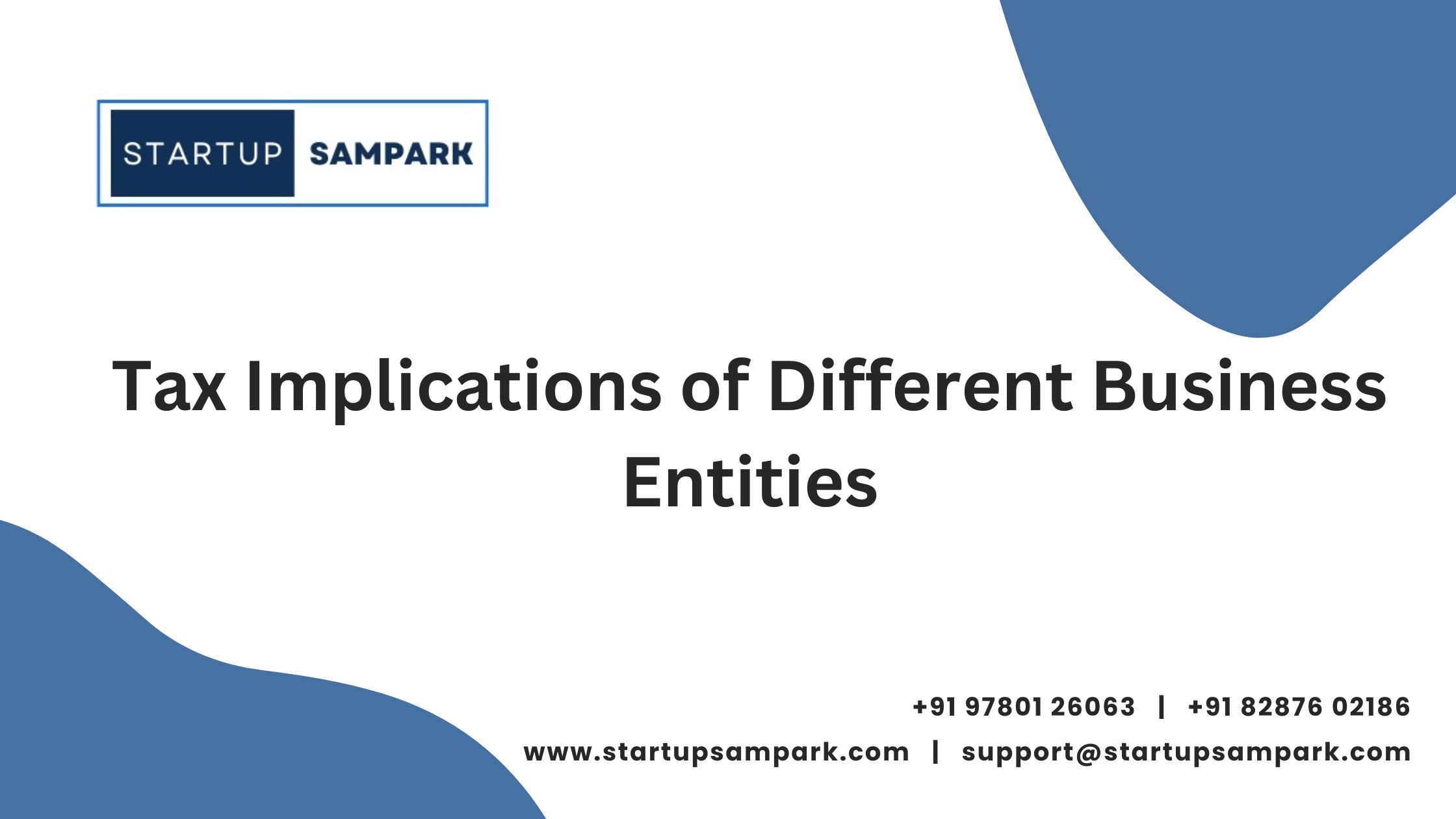Tax Implications of Different Business Entities
Introduction to Tax Implications for Business Entities in India
When starting a business in India, one of the critical factors entrepreneurs must consider is the tax implications associated with different business entities. The choice of business structure—whether a Sole Proprietorship, Partnership, Limited Liability Partnership (LLP), Private Limited Company, or Public Limited Company—can significantly affect the overall tax liability of the business. Each structure has its unique tax treatments, advantages, and disadvantages, making it essential for business owners to understand how their choice will impact their financial obligations and tax planning strategies.
Sole Proprietorship: Simple Taxation, High Liability
A Sole Proprietorship is the simplest form of business structure in India, characterized by minimal compliance and regulatory requirements. Taxation for a sole proprietorship is straightforward, as the income generated by the business is treated as personal income for the owner. The profits are taxed according to the individual’s tax slab, which can lead to higher tax liabilities for entrepreneurs with substantial income. Additionally, sole proprietors bear unlimited liability, meaning personal assets are at risk if the business incurs debts. While the simplicity of taxation is advantageous for small businesses, the higher personal tax rate and lack of liability protection can be drawbacks for those looking to grow or take on significant financial risk.
-
 Startup Registration (DPIIT Recognition)₹8,850.00
Startup Registration (DPIIT Recognition)₹8,850.00
Partnership: Joint Taxation and Shared Liability
Partnerships in India are governed by the Indian Partnership Act, 1932, and involve two or more individuals who share profits and losses. Taxation for partnerships is distinct; the partnership itself does not pay taxes, but each partner’s share of profit is taxed as personal income at their applicable tax slab. Additionally, partnerships are subject to a higher tax rate if their income exceeds a specified threshold. Partners can also benefit from certain deductions and exemptions based on the nature of their business activities. However, similar to sole proprietorships, partnerships have unlimited liability, meaning that partners are jointly responsible for the business’s debts, which could put personal assets at risk.
Limited Liability Partnership (LLP): Tax Advantages with Limited Liability
The Limited Liability Partnership (LLP) structure combines the benefits of a partnership with limited liability protection. An LLP is treated as a separate legal entity, and while the income generated by the LLP is taxed at a flat rate of 30%, partners are taxed on their share of profits as personal income. This structure offers significant tax advantages, including the flexibility of profit distribution among partners and limited liability, which protects personal assets from business debts. Additionally, LLPs can carry forward losses for set-off against future profits, providing further tax planning opportunities. The LLP structure is increasingly popular among professionals and small businesses looking for a balance between flexibility and liability protection.
Private Limited Company: Corporate Tax and Enhanced Credibility
Private Limited Companies (Pvt Ltd) in India are more complex entities subject to corporate taxation. The profits of a Private Limited Company are taxed at a flat rate of 25% to 30%, depending on the turnover. This structure benefits from limited liability, meaning shareholders are only liable for the company’s debts up to their shareholding. Additionally, companies can retain earnings within the business for reinvestment without incurring personal tax liabilities, which can be advantageous for growth-oriented businesses. However, corporate tax rates and the requirement to comply with stringent regulatory norms can result in higher operational costs. Moreover, when dividends are distributed to shareholders, they are subject to Dividend Distribution Tax (DDT), impacting the overall returns for investors.
Public Limited Company: Regulatory Scrutiny and Tax Considerations
Public Limited Companies (PLC) have more stringent regulatory requirements and a broader scope for raising capital through public offerings. Similar to Private Limited Companies, PLCs are subject to corporate taxation at the same rates. However, the compliance burden is significantly higher, with rigorous reporting, auditing, and governance standards mandated by regulatory bodies such as the Securities and Exchange Board of India (SEBI). Tax implications for PLCs can also be more complex due to potential taxation on capital gains and additional taxes on dividends paid out to shareholders. The increased transparency and scrutiny associated with being publicly traded can create challenges but also enhances credibility and investor confidence.
Conclusion: Making an Informed Decision
In conclusion, understanding the tax implications associated with different business entities in India is crucial for entrepreneurs to make informed decisions. Each business structure presents unique advantages and challenges regarding tax liability, compliance, and financial risk. By carefully evaluating these factors, business owners can select a structure that aligns with their operational goals, risk tolerance, and long-term financial strategy. Consulting with financial and legal experts can further help entrepreneurs navigate the complexities of tax planning and ensure they comply with relevant regulations while optimizing their tax liabilities.
startup, India
-
 Startup Registration (DPIIT Recognition)₹8,850.00
Startup Registration (DPIIT Recognition)₹8,850.00















Post Comment